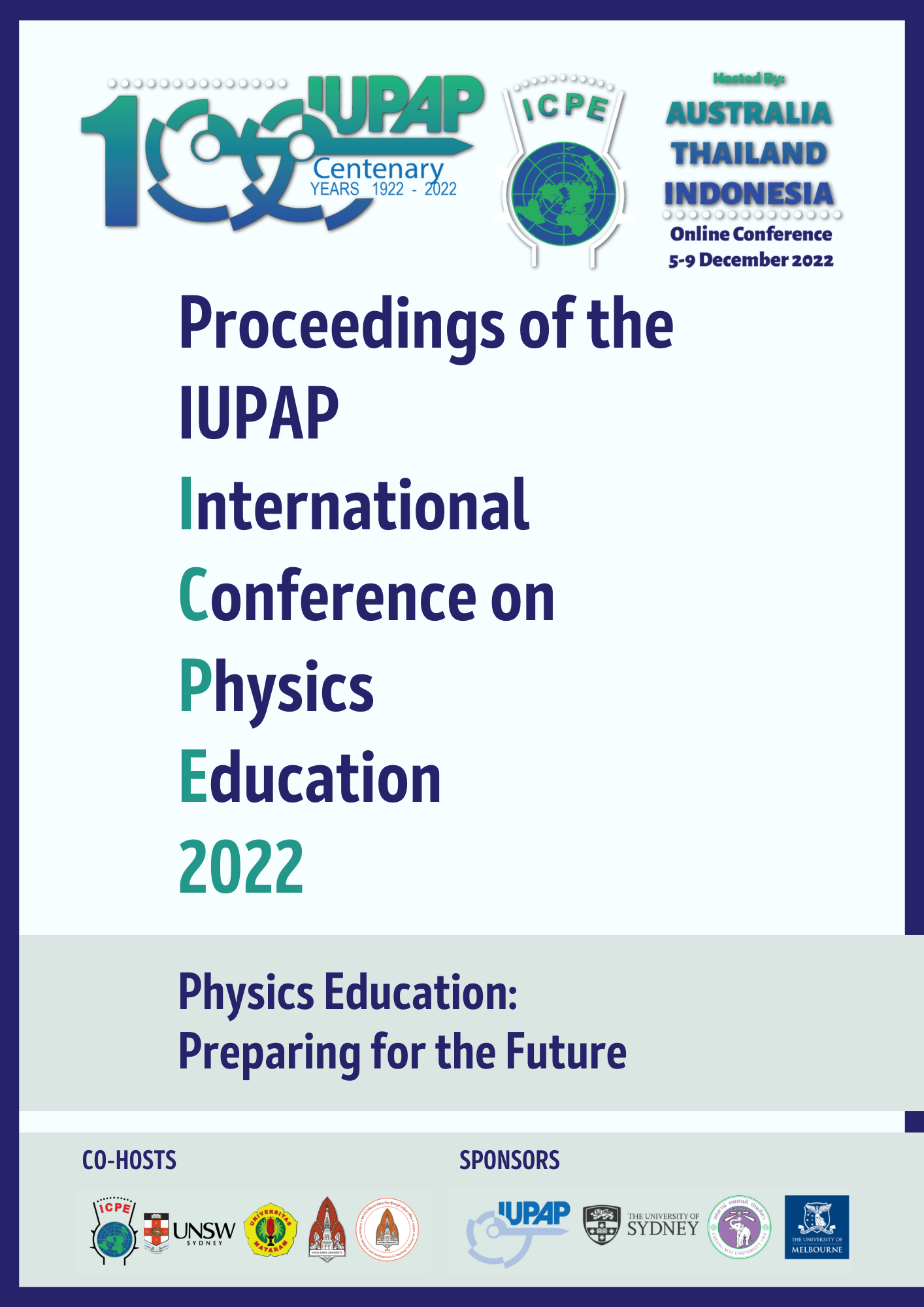The everyday scientific dialogue in physics teaching from the Freirean perspective
Keywords:
Paulo Freire, Dialogical Teaching-Problematizing, Technological ObjectsAbstract
This research has as its central theme the dialogic-problematizing conception, linked to the use of generating objects in Physics Teaching, a theory defended by Paulo Freire (1987). The research was applied in two high school classes, in a public school in the State of Paraná (Brazil), seeking to awaken in students the learning of Physics based on an emancipatory aspect of research-action, in which the teacher is responsible for investigation of the teaching practice itself, and the student is responsible for the construction of knowledge during the learning process. With dialogic teaching, the teacher must promote dialogue in the classroom, because it is through dialogue that the student presents his previous knowledge and also presents the hypotheses about what will be taught. This situation can make room for students to be more interested in the discipline because the more knowledge is shared, the more curiosity can be triggered throughout the class. By allowing dialogue, the teacher demonstrates that he believes in the potential of his students and does not put them under block against what is being developed in the classroom (Freire, 1987). Observation activities were carried out in the classroom following a script (Mion, 2002), in this way, the following problem arose: How does the problem-solving dialogic teaching based on the use of knowledge-generating objects contribute to the learning process of students in the discipline of Physics? Based on this problem, we investigated the strategies that enabled the development of Physics Teaching in the Freirean dialogical conception, allowing students to have contextualized classes from the problematization of the functioning, manufacture and destination of technical objects, making use of two themes: optics and electricity.
The most evident problems for both classes were lack of interest and lack of motivation. To solve this problem, we used the methodological strategy of problematizing two technical objects, the camera and the electric shower. Based on the students' empirical knowledge on the subject, we planned and executed educational activities based on the questioning of the functioning, manufacture and destination of the camera, exploring the concepts of image formation, vision problems, mirages and photograph formation. In addition, the operation and heating of the water in the shower, exploring the entire construction of the electrical circuit and the Joule Effect, discussing the topic of resistors and electrical resistance. Throughout the data process, the central categories of our research were: the questioning, which allow a broader view of physical concepts associated with students' daily lives, students were challenged to solve everyday situations using technical objects taken to the classroom associated with dialogue to solve situations involving concepts of optics and electricity. During the research, it was possible to notice that students with a lower level of knowledge, who also showed less interest in the applied content, became more interested and participative during classes. This change in student behavior allowed for more productive moments and more meaningful learning for everyone involved – students and teachers. As a result, it was possible to perceive the importance of dialogue in the classroom and during the teaching and learning process of students. The discussions and analysis of the planning and the records of observations of the educational practice itself, revealed that through the use of technical objects it was possible to establish a dialogue between scientific knowledge, everyday situations and discussions of technological and social aspects, contributing to the construction of the knowledge and greater student motivation.
REFERENCESFreire, P. (1987). Pedagogy of the Oppressed. 17th ed. Rio de Janeiro, Peace and Earth, 1987.
Mion, R. A. (2002). Reflective process and action research: notes on a dialogic educational practice in Physics. Dissertation (Master in Education) - Postgraduate Program in Education, Federal University of Santa Maria. Santa Maria.
Downloads
Published
Issue
Section
License
Authors who publish with the Proceedings of the International Conference on Physics Education 2022 agree to the following terms:
a) Authors retain copyright and grant the journal right of first publication with the work simultaneously licensed under a Creative Commons Attribution License (https://creativecommons.org/licenses/by/4.0/) that allows others to share the work with an acknowledgement of the work's authorship and initial publication in this journal.
b) Authors are able to enter into separate, additional contractual arrangements for the non-exclusive distribution of the journal's published version of the work (e.g., post it to an institutional repository or publish it in a book), with an acknowledgement of its initial publication in this journal.
c) Authors are permitted and encouraged to post their work online (e.g., in institutional repositories or on their website) prior to and during the submission process, as it can lead to productive exchanges, as well as earlier and greater citation of published work (See The Effect of Open Access - http://opcit.eprints.org/oacitation-biblio.html).
Privacy Statement The names and email addresses entered in the Proceedings of the International Conference on Physics Education 2022 site will be used exclusively for the stated purposes of this journal and will not be made available for any other purpose or to any other party.
